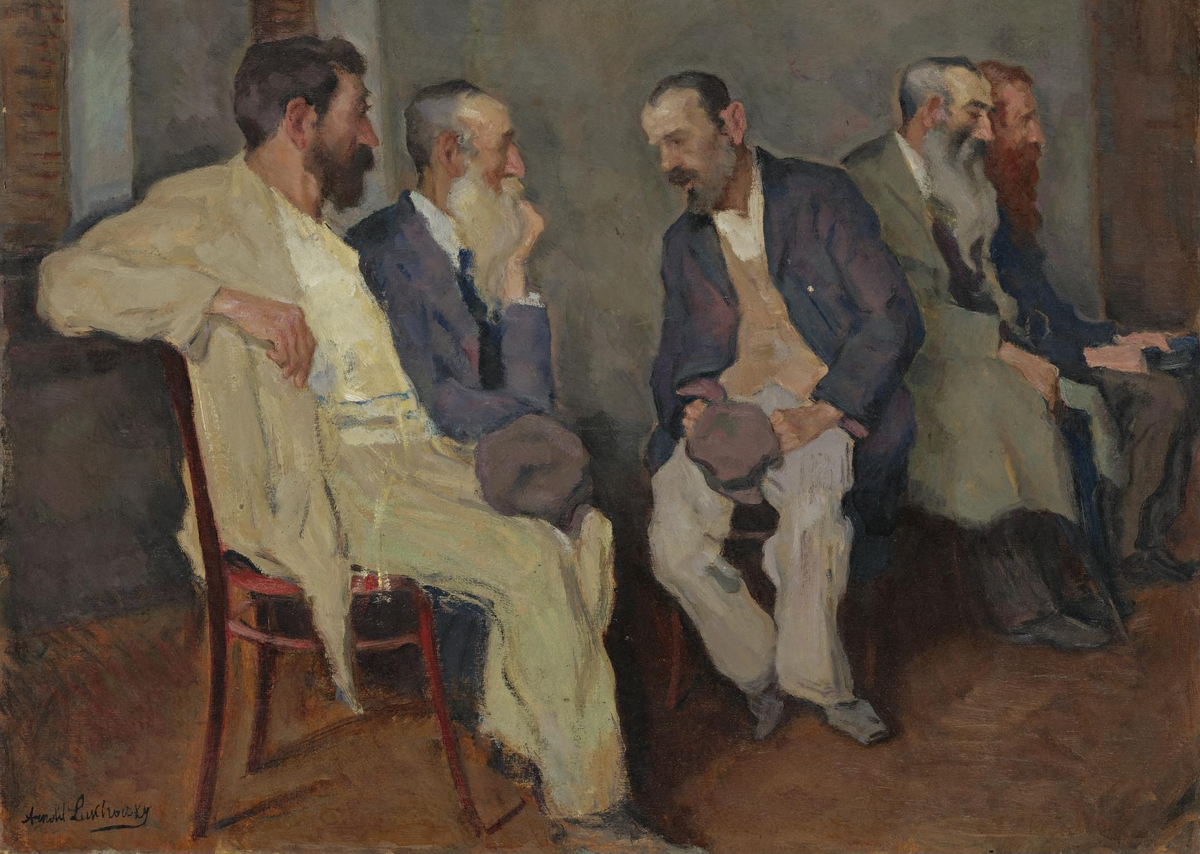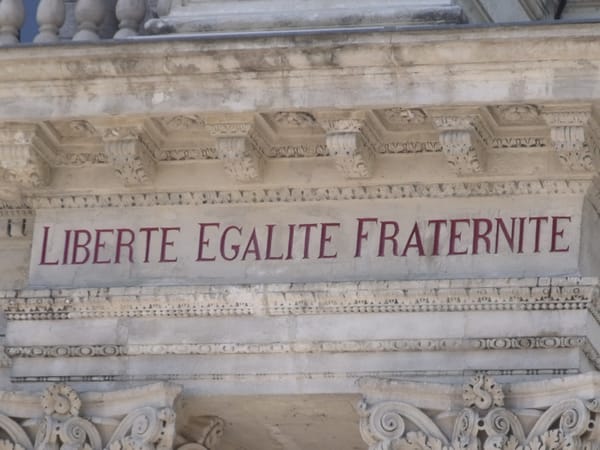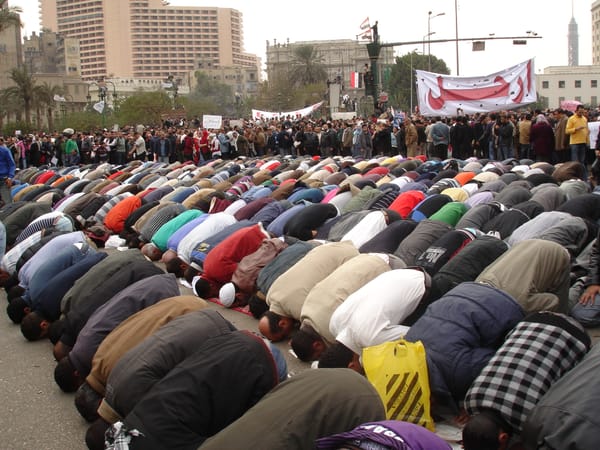Gimme That Old Time Liberalism: Adam Gopnik’s A Thousand Small Sanities

In a recent piece for Vox, Zach Beauchamp claims that “Many modern liberals, including some brilliant and well-regarded thinkers, do not seem up to the task of defending liberalism from its newest wave of critics.” He says that they lean on old arguments and sit smugly on the victories of past battles but can offer nothing fresh to an increasingly anxious and frustrated populace. Adam Gopnik’s new book, A Thousand Small Sanities, is among the culprits singled out. Beauchamp claims the primary point of Gopnik’s book is that “liberalism may not be perfect, but it has a long history of repairing itself.” But this alone, Beauchamp says, doesn’t explain how liberalism can repair itself right now. “The victory of the suffragettes is cold comfort for women fighting for equal pay; claiming that liberalism abolished Jim Crow does nothing to tell us how it will fix the new Jim Crow. Gopnik’s argument is more of a testament of faith in liberalism rather than an effort to chart a way through the current crisis.”[1]
Beauchamp offers a singularly impoverished reading of a surprisingly rich book. In fact, Gopnik is quite specific that what we need is to return liberalism to “the shop floor” and away from “radical criticism” of the sort Beauchamp finds so unanswerable. Beauchamp simply offers no reason to think that liberals aren’t talking about issues like mass incarceration or the gender pay gap or taking them seriously. I went to an ACLU meeting a few months ago—sparsely attended of course—about the very real problem of mass incarceration and people, mostly young black men, being held in criminal justice limbo for months at a time with no charges and no money for bail. The problem isn’t that liberals aren’t talking, it’s that people aren’t listening. Politics, to the liberal, is boring, and one could be excused for not coming up with sexy slogans and flashy new theories where hard work and policy changes are what’s needed. Perhaps the reason those far left critics don’t think anything being done is because liberals are doing the work of trying to chart a course through complex and dizzying issues that have many sides to consider rather than attempting to fix everything with a hammer—or a sickle.
Gopnik defines liberalism as “an evolving political practice that makes the case for the necessity and possibility of (imperfectly) egalitarian social reform and ever greater (if not absolute) tolerance of human difference through reasoned and (mostly) unimpeded conversation, demonstration, and debate.” Gopnik admits that this is clunky and, though he doesn’t use the word himself, unsexy compared to other political slogans: “faith and family,” “down with the system,” “liberation!” But that’s neither here nor there. The reason liberalism constantly needs new people to take up the mantle of defense is that it just is an unsexy political orientation. There aren’t any quick fixes and it’s not immediately clear what, if anything, gives us meaning in the liberal’s utopia. The liberal’s insistence on incremental reform, compromise, skepticism about concentrated power and authority, fallibilism—the idea that we could be wrong about everything and therefore should be cautious—and the idea that reform and adaptation are never-ending and inescapable facts of life, is viewed as weak from both the ends of the political spectrum. But one man’s weakness is another’s strength, and Gopnik is right to see liberalism less as a specific political doctrine and more of an “emotional temperament” that is more than equipped to handle the problems of modernity.
The far right’s problem with liberalism, according to Gopnik, is its overreliance on reason and underappreciation for order. From this perceived weakness springs the three distinct attacks: triumphalist authoritarianism, theological authoritarianism, and tragic authoritarianism. Triumphalist authoritarianism or nationalism is the idea that “the organizing force in life” is the nation, the tribe, the people. The globalism and cosmopolitanism of the liberal elite is a sham and cares not one wit for the communities it levels in its destructive wake. “Whole communities, entire cities, are being stripped of their identity and history—by the relentless march of capitalism, yes, but also by a cultural elite in London or New York or Paris or Palo Alto that looks down its nose at anyone left behind and tries to impose ideas on them.” The obvious reaction to this sneering cosmopolitanism is to “lash out at an establishment that shows little empathy with their existence,” even if this means electing a strongman, wannabe authoritarian figure like Trump.
Theological authoritarianism, what Gopnik rightly sees as a more sophisticated and intellectually respectable foe of liberalism, finds its expression in recent political tracts like Patrick Deneen’s Why Liberalism Failed. Authority, we are told, shouldn’t come from people but something more stable, like religion. “Theological authoritarians,” Gopnik writes, “hate liberalism not because liberals are weak but because they seem so strong, so arrogant and complacent in their denial of divine truth.” Although not exactly popular in a society that takes ideas like the separation of church and state for granted, the theological triumphalist translates their criticism of liberalism into a criticism of materialism. Liberalism, we are told, “proposes a world of such narrow self-fulfillment that it naturally alienates all but the small group of self-seekers it benefits, and even they are mostly miserable.” Far from the paradise it’s often made out to be, liberalism is nothing but “opportunism, hedonism, and anarchy.”
The last front of the Right’s assault comes from tragic authoritarianism, which has a problem not with liberal secularism but liberal progressivism. Liberalism is over-confident in its ability to rearrange and reform people’s lives for the better. It starts in grandiose theory and abstract ideas about equality and fairness and ends in disaster. Because liberals are out of touch with the real world and refuse to acknowledge the “tragic wisdom” that comes from, well, experience rather than books and conferences, they try to paper over the unpalatable parts of life with utopian projects which, when implemented, mostly just serve to screw things up.
Gopnik, unsurprisingly, thinks much of the criticism coming from these three corners is off the mark—he’s not wrong: liberalism is a capacious tradition and, to a certain extent, you can find just about anything you want in there so long as you find your way back to the typical liberal justifications. But we are still confronted with three rather large, sweeping critiques: liberalism destroys communities and nations, it actively errodes religious sentiment, and ignores the simple fact that we will never escape tragedy.
To the right-wing communitarian critic, we can reply that liberalism
recognizes the truth that a closed or clan or ethnic society invariably either can’t be realized, or that, if we try to realize it, doing so involves coercion on a scale that makes the enforced assertion of a common identity far crueler than its erasure. There are no “people like us.” As soon as we are surrounded by people like us, we start seeing how much unlike us some of them are, and the cycle of exclusion and excommunication begins again.
The point has been put a thousand different ways but remains the same: sure, clan societies had their benefits, but they also had massive costs and those costs were paid by members of the clan themselves as well as outsiders, so we can say, without a shadow of a doubt, that the liberal value of choice, the freedom to move, the freedom to leave one association and enter another has been an unequivocal victory for humanity. Furthermore, one would be hard pressed to find a single liberal thinker who didn’t understand the need for some semblance of community and understand that people yearn for connection, not just the right institutional arrangements. This is in part due to the communitarian critique of liberalism launched in the 1980s, but even Adam Smith pointed out how social sympathy formed the foundation for markets and later John Dewey offered a similar point about the need social solidarity in order to have a functioning legal system and flourishing society. Liberal thinkers often talked about community without actually using the word “community.” But that’s quite a bit different from saying liberals don’t care about it. They just care about it in a different way.
With respect to religion, liberalism might be on even stronger grounds. Secularism, Gopnik writes, is “simply the proliferation of different religious faiths,” and so if one is looking for “space for faith practice” rather than “power for one of them alone” then “no societies have opened more doors to the spiritual life than the liberal democracies.” When the question is raised about Christian bakers baking cakes for gay weddings, Gopnik thinks the religious are resting their case for intolerance on “absurdly tiny” examples. But for Gopnik, cases like Masterpiece Cake Shop cut both ways: the religious are looking for reasons to say liberalism is failing by pointing to a few small cases, but liberals are also picking fights where there need not be. “Open lunch counters are essential to equality,” Gopnik says, but “are open-minded bakers as essential? Liberals should not be fine-print artists; having gotten the big things, they should not sweat the small ones too much.”
To the last criticism, that of the tragic authoritarian, the liberal responds that it is “true in its analysis but too despairing in its diagnosis … We can believe in the importance of ameliorating pain without thinking that every kind of pain can always be ameliorated.” Sidney Hook said much of the same thing in response to critics accusing the pragmatic way of life of being too optimistic with respect to the elimination of pain and suffering. The passage works equally well with “liberal” instead of “pragmatic”:
As I understand the [liberal] perspective on life, it is an attempt to make it possible for men to live in a world of inescapable tragedy,—a tragedy which flows from the conflict of moral ideals,—without lamentation, defiance or make-believe. According to this perspective even in the best of human worlds there will be tragedy—tragedy perhaps without bloodshed but certainly not without tears.[2]
It is the liberal understanding, tragic in implication if not in word, that we can always work toward ending pain and suffering while at the same time understanding we may never do so entirely. Indeed, Hook said with respect to this project of enlarging human freedom and eliminating cruelty, “It may be a lost cause. I do not know of a better one.” As good a liberal credo as any.
Hook’s parting phrase—“perhaps without bloodshed but certainly not without tears”—sums up nicely the difference between liberals and leftists, which is the subject of the second half of the book. The left-wing criticism of liberalism, Gopnik points out, is an attack on the liberal belief in reform over revolution. “Only revolutionary change,” the milquetoast liberal is told, “can bring justice and equality to a criminally unjust world.” Gopnik is right to notice that this disagreement is more along the lines of a family quarrel than the seemingly intractable arguments with the right. Typically, liberals and leftists share “a faith that the future can be better than the past and a confidence that spiritual improvements depend on material ones,” though, as we’ll see, it does seem like the latter point has been a point of contention in recent years.
What leftists have in mind here for a “criminally unjust world” runs the gamut, and it’s difficult to deny its force. From exportation of liberal values to other parts of the world in the form of bombs and exploitation to the rampant sexism, racism, and other forms of discrimination in our own country, the criticism is wide-ranging and total. Gopnik, taking up the perspective of the radical leftist, says:
The “reforms” of which liberals never tire of self-praising are simply a series of grudging and partial concessions to popular pressure—ways of opening a steam valve to relieve those pressures and avoid blowing up the ship. Meanwhile, letting a few lucky poor folks shimmy part way up the liberal chain of being to keep others thinking they can, too. The parliamentary proceduralism, of which liberals boast, is still another way of preventing change from happening—designed for the most part to corrupt and co-opt potential resistance. Liberals self-praise freedom of speech—but since all their speech is implanted within the capitalist order in which money is the only real medium of exchange, that claim of freedom for all isn’t merely partial but deliberately fraudulent. What liberals call free speech or a free press is invariably paid speech—and William Randolph Hearst or, these days, Rupert Murdoch can pay for a lot more of it than a sweatshop worker can. The ground of liberalism in open debate sounds cozy until you price it…
We never break out of our chains, we only ever replace them with a slightly more comfortable pair. A liberal is the kind of person who, upon having their handcuffs loosened, is eternally grateful for the increased comfort, apparently undisturbed by the fact that they are, at the end of the day, still in the back of a police car.
According to Gopnik, the far left went from “being above all economic” to “above all cultural.” He claims that “questions about labor and the shop floor have become less central to radical criticism of liberalism, and questions of gender, race, language, and sexual orientation ever more so,” and it’s possible “to see this as a massive distraction for progressive causes, in which the left manages to get sombreros banned from college parties while every federal court in the country is assigned a far-right-wing activist judge.”
Bemoaning something called “identity politics” or “intersectionality” is the surest way to get ignored by the left. Self-proclaimed centrists, to say nothing of outright conservatives, spill a lot of ink on the problem of free speech on campus and use isolated examples in order to prove that there’s a larger problem that people are failing or refusing to see. Gopnik distances his critique from this tendency. “Real though the problem of civil liberties on campuses might be,” he writes, “it is infinitely less concerning than the power of corporate speech or the daily presence of hate speech from the highest source of power directed against threatened groups.” Two things can be bad at the same time, but it doesn’t mean they are equally bad. College kids trying to get a professor fired for something he or she said—while undoubtedly bad—“is not remotely similar to watching Fox News presenting a steady stream of lies about transgender people and Mexican rapists.” Online outlets writing incessantly about the campus problem create the impression that it is, in fact, the much bigger problem.
The reason identity politics is concerning to liberals isn’t due to the nature of identity politics per se, but rather the way it is wielded in the public sphere—it serves to distract us from “shop floor” politics and tends to derail conversations and cause division rather than promote even a thin sense of solidarity. Some critics, like Beauchamp, insist that the turn to identity is “sowing the seeds of liberal renewal.” It’s true, as Beauchamp writes, “that organization around group identity has helped create a number of vital political movements that are defending liberalism’s central component parts,” but the devil is in the details. Gopnik is right to point out that while the right wants cultural victories, it only ever gets political ones, and where the left wants political victories, it only ever gets cultural ones. At the very least this should be concerning to leftists.
The liberal response to identity politics and intersectionality isn’t, then, a wholesale dismissal—far from it. It simply, and calmly, says that “economic injustice is self-evidently amendable within the liberal order” and that “while the new radical assault on liberalism suggests a passionate politics, it still doesn’t propose a practical politics”—one that wins elections and puts liberal-thinking judges on benches. That’s essentially it. Liberals grant the utility of intersectionality and identity politics in shining a bright light on channels of oppression previously unseen and providing avenues for voices previously unheard to be heard, but that road can quickly lead us away from practical politics and structural reform. It’s just not clear that spending the majority of one’s time trying to get people to think the right thoughts will lead to providing more material security and comfort for more and more people. Gopnik, like the radical critics he pushes back on, believes that culture precedes politics. This is right, but can easily slide into a kind of cultural perfectionism, in which it is believed that no political or structural change can take place until the customs, norms, and thoughts of everybody are ready for it. This is clearly not true.
Three days after the election of Donald Trump in 2016, a law professor on Twitter brought Richard Rorty back to life as a public intellectual—not as a prophet of pragmatism, as many thought of him, but as a prophet of politics. The tweet concerned three paragraphs from Rorty’s 1998 book Achieving Our Country: Leftist Thought in Twentieth-Century America. They read:
[M]embers of labor unions, and unorganized unskilled workers, will sooner or later realize that their government is not even trying to prevent wages from sinking or to prevent jobs from being exported. Around the same time, they will realize that suburban white-collar workers—themselves desperately afraid of being downsized—are not going to let themselves be taxed to provide social benefits for anyone else.
At that point, something will crack. The nonsuburban electorate will decide that the system has failed and start looking around for a strongman to vote for—someone willing to assure them that, once he is elected, the smug bureaucrats, tricky lawyers, overpaid bond salesmen, and postmodernist professors will no longer be calling the shots. …
One thing that is very likely to happen is that the gains made in the past 40 years by black and brown Americans, and by homosexuals, will be wiped out. Jocular contempt for women will come back into fashion. … All the resentment which badly educated Americans feel about having their manners dictated to them by college graduates will find an outlet.[3]
Rorty was a self-proclaimed old-fashioned liberal, and I think he would have liked and appreciated Gopnik’s book—it’s very much in the spirit and style of his own book. Both are spirited defenses of liberalism in the face of its radical critics to the right, left, and even those wearied from within its own ranks. Both knew, as the passage above indicates and in Gopnik’s own words, that “silencing people, or giving them the strong feeling that they are not being heard at all, is, historically—as marginalized people should be the first to recognize—a completely unsuccessful social project.”
I don’t think it’s too much of a stretch to say that liberals are more concerned with keeping the ship afloat, keeping it in working order, keeping it, in Oakeshott’s image, “on an even keel,” than getting somewhere. Indeed, in Oakeshott we find another liberal credo:
And we find freedom once more in a preference for slow, small changes which have behind them a voluntary consensus of opinion, in our ability to resist disintegration without suppressing opposition, and in our perception that it is more important for a society to move together than for it to move either fast or slow (emphasis mine).[4]
Moving together requires compromise—something right-wing critics fail to recognize when they accuse the liberal of being too optimistic, not having a sufficient sense of the tragic. I’m not sure we have a better appreciation for the tragic than in liberal’s commitment to compromise. We do, after all, have to live together. A liberal is someone who thinks we shouldn’t blithely set this simple fact aside.
Rorty wasn’t optimistic about the situation: “I have no idea whether we shall see, in the next century, the sort of re-enchantment with politics that gave us the Progressive era and, later, the civil rights movement. Maybe this time around the oligarchs will win, and democratic government be reduced to a farce once and for all.”[5] Maybe they will. And maybe the right-wing authoritarian triumphalists will win. Or maybe the radical leftists will get their way and bring the entire system down on itself in order to build a new one from the ashes—a new one, mind you, that will still have all those “deplorables” in it just as the theological authoritarian’s paradise would still have atheists and secularists. Who knows what will happen. But liberalism doesn’t need to choose either optimism or pessimism; it is an emotional temperament and questions like this rarely come up. There’s not enough time and too much work to be done to wonder whether the world is going to hell in a handbasket or not.
[1] Zach Beauchamp, “The anti-liberal moment,” Vox.
[2] Sidney Hook, “Pragmatism and the Tragic Sense of Life,” 1977.
[3] Richard Rorty, Achieving Our Country, 1997.
[4] Michael Oakeshott, “The Political Economy of Freedom,” 1967.
[5] Richard Rorty, “A Defense of Minimalist Liberalism.”
Featured Image is The Conversation, by Arnold Borisowich Lakhovsky




